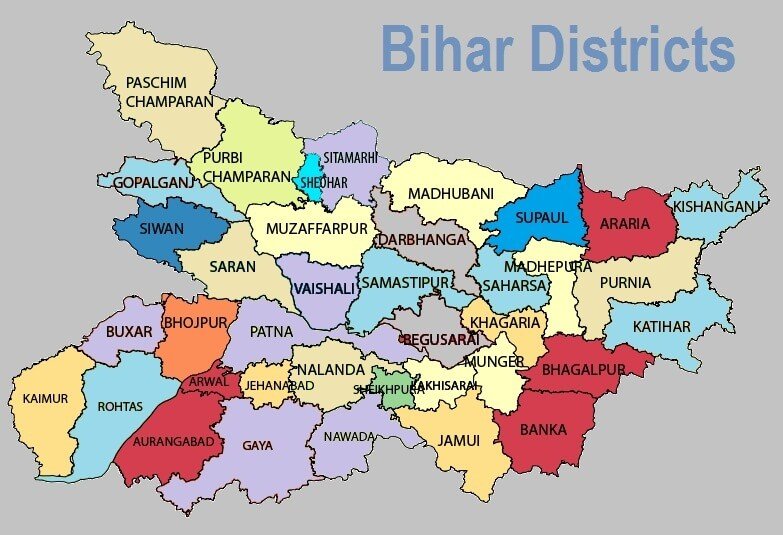Karimganj District Gets New Name – Sribhumi, Says CM Sarma
Introduction to the News
In a significant move, Karimganj district in Assam has been officially renamed to Sribhumi, as declared by the Chief Minister of Assam, Himanta Biswa Sarma. This change was made to honor the region’s rich cultural and historical significance. The renaming marks a fresh chapter in the state’s ongoing efforts to recognize and promote the cultural heritage of various regions. The announcement has sparked considerable debate and curiosity, both within the state and beyond.
The Reason Behind the Renaming
The decision to rename Karimganj to Sribhumi was driven by a desire to reconnect with the region’s roots and cultural identity. CM Sarma explained that the new name reflects the historical importance of the area, with Sribhumi symbolizing prosperity and cultural heritage. The region has long been known for its diverse communities and vibrant traditions, and the renaming aims to highlight its historical connections to the greater Assamese culture.
The Process of Renaming and Its Implications
The renaming of districts is part of a broader effort by the Assam government to modernize and reassert local identities. While some residents have welcomed the change, others have expressed concerns about the loss of historical identity associated with the original name. However, the government has assured that the name change will not disrupt the administrative functions or historical significance of the area. This renaming is seen as an attempt to forge a deeper sense of pride and belonging among the people of the region.
Government’s View on the Move
According to the Chief Minister, the renaming of Karimganj to Sribhumi is in line with the state’s commitment to preserving and celebrating Assam’s rich cultural heritage. The government believes that this change will help foster a stronger connection with the past while paving the way for future development. CM Sarma emphasized that such initiatives reflect the state’s ongoing efforts to promote regional diversity and pride.

Why This News is Important
Cultural Significance
Renaming a district is not just a symbolic act but a reflection of cultural pride. Sribhumi, as a name, connects the people of the region to their cultural roots, fostering a sense of unity and respect for their traditions. For students preparing for government exams, understanding the cultural and administrative decisions like these can offer insights into the ongoing efforts of regional identity building and governance.
Government Policy and Regional Identity
This move aligns with the Assam government’s broader policies aimed at strengthening regional identities. For candidates aiming for civil services or positions within the state’s administrative machinery, grasping how local governments work to promote state pride and cultural heritage is essential. It highlights how names and symbols play a role in shaping local governance and public sentiment.
Impact on Local Communities
The renaming of districts can have far-reaching implications on local communities, including changes in administrative practices, cultural tourism, and social cohesion. For students preparing for exams in areas like public administration and sociology, understanding how such administrative changes affect local communities can offer valuable perspectives for exam questions on governance and social impact.
Historical Context: The Significance of Karimganj and Sribhumi
Karimganj, historically known for its role as a border district in the southern part of Assam, has had a mix of Bengali, Assamese, and indigenous influences. The district has always been culturally rich, with a diverse population that contributes to its unique character. The area has played a role in Assam’s struggle for independence and has witnessed significant cultural transformations over the decades.
Renaming the district to Sribhumi aims to reclaim a cultural identity tied to the Assamese heritage. “Sribhumi” is derived from the Sanskrit words “Sri” (prosperity) and “Bhumi” (land), symbolizing a prosperous and culturally rich land. This reflects a growing trend of reasserting regional identities, a process seen in several parts of India in recent years, where historical names are being revisited to reflect the cultural significance of the regions.
Key Takeaways from the News
| Serial No. | Key Takeaway |
|---|---|
| 1 | Karimganj District Renamed to Sribhumi – The Assam government has officially renamed Karimganj district to Sribhumi to celebrate the region’s cultural heritage. |
| 2 | Cultural Significance of Sribhumi – The new name reflects the region’s historical importance, linking it to prosperity and cultural richness. |
| 3 | Government’s Focus on Regional Identity – The renaming is part of Assam’s larger initiative to strengthen regional pride and cultural identity. |
| 4 | Implications for Administrative and Social Identity – Renaming can influence both administrative functions and social cohesion within the district. |
| 5 | Educational and Exam Relevance – For exam candidates, understanding the renaming process and its impact on governance is crucial for subjects like public administration and sociology. |
Important FAQs for Students from this News
Why was Karimganj district renamed to Sribhumi?
- The district was renamed to Sribhumi to honor its cultural heritage and connect the region with its Assamese roots. The name “Sribhumi” symbolizes prosperity and reflects the cultural richness of the area.
What does the name Sribhumi mean?
- “Sribhumi” is derived from the Sanskrit words “Sri,” meaning prosperity, and “Bhumi,” meaning land. Together, they signify a prosperous land, symbolizing the cultural and historical significance of the region.
What is the government’s stance on the renaming of Karimganj?
- The Assam government, led by Chief Minister Himanta Biswa Sarma, views the renaming as part of its efforts to promote regional pride and cultural heritage. The government believes it will help strengthen the connection of the people with their cultural identity.
How will the renaming affect the administration and governance of the district?
- The renaming is symbolic and will not disrupt the administrative functions of the district. The government has ensured that the name change will not cause any operational hindrance but aims to enhance the region’s identity.
Are there any reactions from the local community regarding the renaming?
- While some residents have welcomed the change as a step towards celebrating the region’s cultural identity, others have raised concerns about the loss of the district’s historical name. However, the government has emphasized that the change is for cultural preservation and pride.
Some Important Current Affairs Links

















